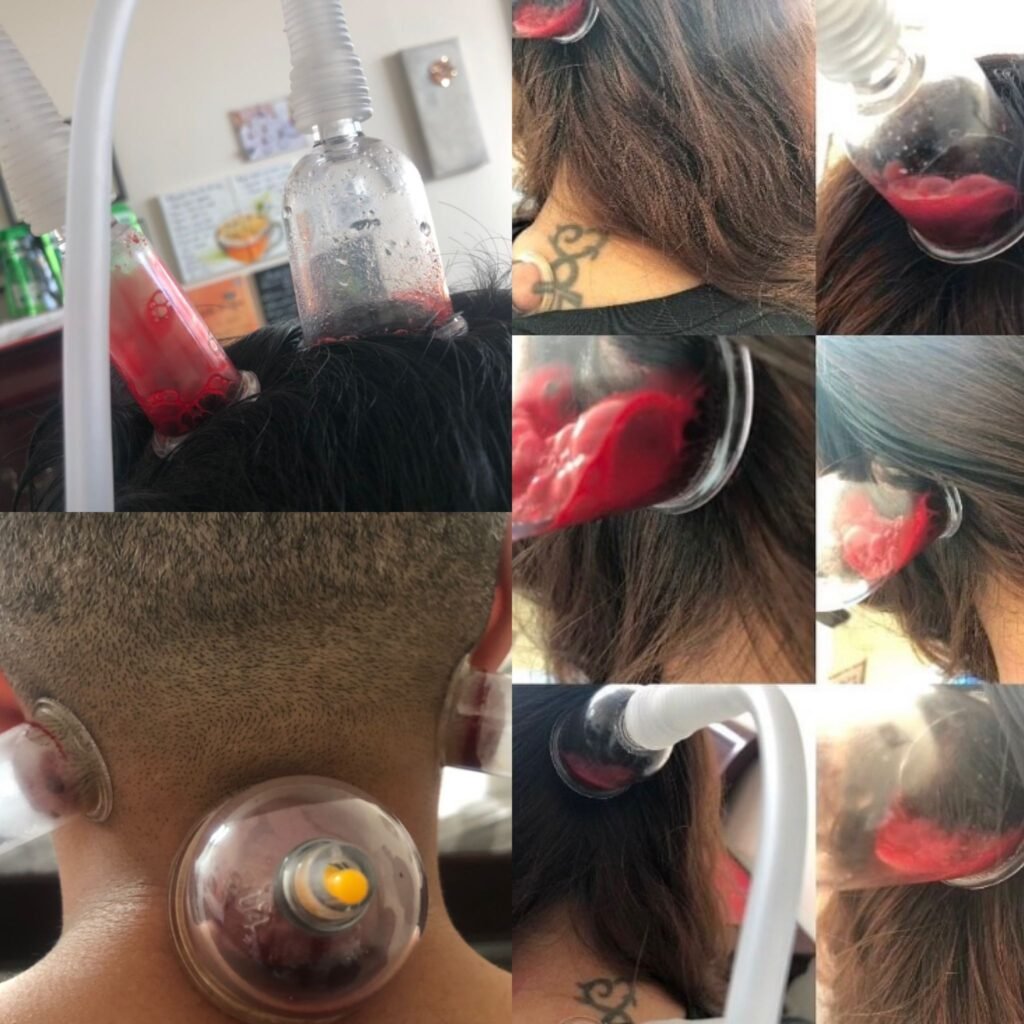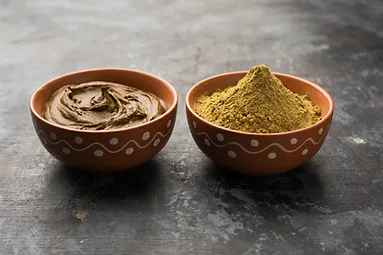No products in the cart.
Benefits Of Henna For Headaches With Hijama & Prophetic Medicine
In Prophetic Medicine, Henna is considered very effective for headaches.
Al-Bukhari and Abu-Dawud in his sunan recorder: Never did anyone complain to the Messenger of Allah(PBUH) of a headache, but the Messenger of Allah (PBUH) said to him. Let you be cupped and never did anyone complain to Him (PBUH) from pain in the leg. The messenger of Allah said, Let you apply henna to your leg.It is recorded in At-Tirmidhi on the authority of Salma Umm Rafi, the maidservant of the prophet (PBUH) said: Never was the Prophet (PBUH) afflicted by an ulcer or a thorn but that he applied the henna on it.Ibn Majah recorded in his sunan a hadith: “ Whenever the Prophet (PBUH) suffered headache, he used to cover his head with the henna and says, ‘ it will benefit in curing headache, by the will of Allah”.
Headache is a pain that strikes one part of the head or all of it. There are many types of headaches. Sometimes it strikes only at the back or maybe on the front side of the head. The muscles of the head or the nerves and blood vessels in the skull play a vital role in a headache. In most cases, headaches start when the blood vessels in the head become hot with the pressure of harmful chemicals that compile in the head.
When the moisture inside the head heats up, it needs more space to expand. The pressure causes headaches because heated moisture has no way out. This condition causes a type of dizziness called vertigo.
Various other reasons can trigger headaches
Some of them are:
- Dehydration triggers headaches.
- An imbalance of four vital conditions hotness, coldness, dryness, and wetness, may trigger a headache.
- Digestive problems may cause headaches.
- Gastrointestinal issues may also trigger headaches.
- Skipping meals may deprive your brain of functioning accurately, which may cause headaches.
- When the stomach is very heavy with food, it may also trigger headaches.
- Sometimes weather too hot or too cold, can trigger headaches.
- Sleeplessness can also trigger headaches.
- Fever can trigger headaches because of the intense heat that dominates the body.
- People who do not do frequent physical activities can have frequent flares of headaches.
- Working out too hard can put too much pressure on blood vessels and may cause pain in the head.
- Stress, depression, and anxiety tighten the muscles and imbalance the chemicals of the brain that may contribute to headaches.
- Extreme loud noise or too much bright light may also cause headaches.
Treatment for Headaches through Hijama
Ali Bin Abi Rafe’e reported on behalf of his grandfather Salma (Radi Allah ho Anhu): If someone complained to Prophet Muhammad (PBUH) for headaches, the prophet asked him for Hijama….(Abu Dawood).

Headaches are among those ailments that respond very well to Hijama cupping therapy. Hijama cupping therapy is a form of non-invasive healing in which suction is created on the head and neck. The suction results in an increase in blood flow and promotes healing. Headaches occur when there is a reduction of blood in the brain. Hijama not only cleanses the blood but clears up all blockages and stagnations in the body. Hijama cleans up the whole Cardiovascular system.
Henna-A Flowering Plant
Henna is a herb, a flowering plant that is known for its enormous medical benefits. Its botanical name is Lawsonia inermis. It contains a red-orange pigment released by crushing the henna leaves.

Benefits of Henna Plant
- Paste of henna powder has been used for thousands of years to lower the temperature of a body while suffering from a high fever.
- Henna can also be applied as a sunblock.
- Henna paste can treat many skin problems and rashes, such as ringworm or athlete’s foot.
- Applying henna on hands and feet may reduce the symptoms of nerve damage.
- Applying henna ointment on a surgical wound may reduce pain and redness by a small amount.
- Henna acts as a natural remedy for hair loss. Pigments in henna leaves regain the PH balance of the scalp and act as a natural remedy against dryness, thin hair, dandruff, and prematurely graying hair.
- The bark of the henna plant is known to be very effective in treating liver diseases.
- Chewing henna leaves may help treat the cankers and thrush that appears in the mouth.
- Henna is also very useful in treating cracking nails. A man once complained of fissuring in his fingers and offered monetary rewards to whoever could cure him but to no avail. Later, a woman prescribed him a drink of Henna for ten days. He soaked Henna leaves in water and drank the water, his fingers healed and regained their beauty.
- The medicinal uses of henna for nails also include mixing some butter and henna powder and using it as a poultice to treat pus-filled swellings, mange, and scabies.
- Henna may help against the blisters and bumps on the legs, feet, and the rest of the body.
- When the symptoms of smallpox start to break out in children and Henna is applied on the bottom of their feet, the eyes will be immune from the sores accompanying smallpox.
- The henna flowers placed in the wool cloths prevent moulds and mites from ruining the clothes.
- Applying henna on the head helps to strengthen the brain.
Benefits of henna in book Prophetic Medicine
The great scholar Ibn-Qayyaim mentioned the benefits of henna in his book Prophetic Medicine for the Treatment of Headaches and Migraines.
Narrated by Ibn Majah, in a weak Hadith, whenever Prophet Muhammad (PBUH) suffered from a headache, he used to cover his head with Henna and said, Henna helps to relieve the headache with the permission of Allah(swt).
Henna is considered an effective remedy for some specific types of headaches, such as heat strokes. If the reason for the headache is a high fever, applying henna paste on the head is very useful. Crushed henna blended with vinegar and applied to the forehead relieves headaches. The cooling effect of henna paste soothes the boiling nerves. Henna is favourable for headaches and adequate for hot tumours and inflammation.




Leave a Reply